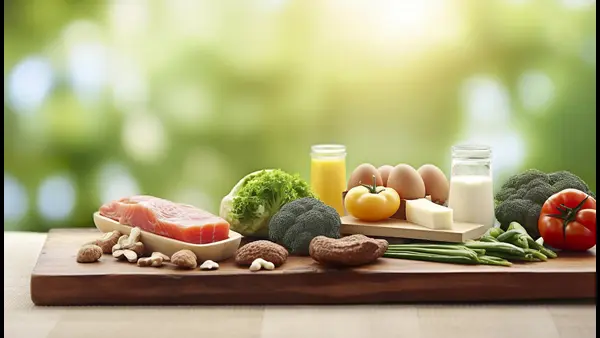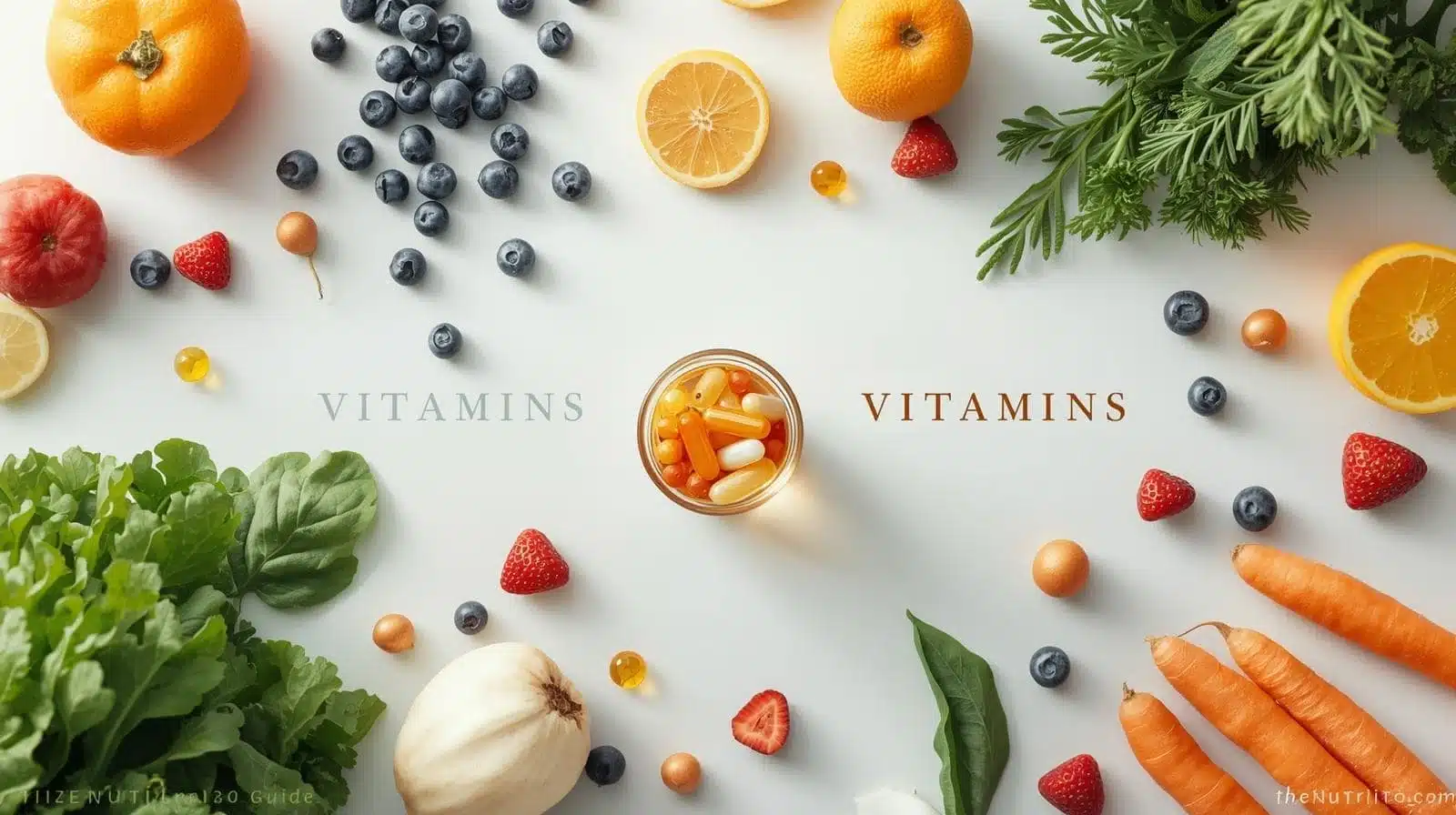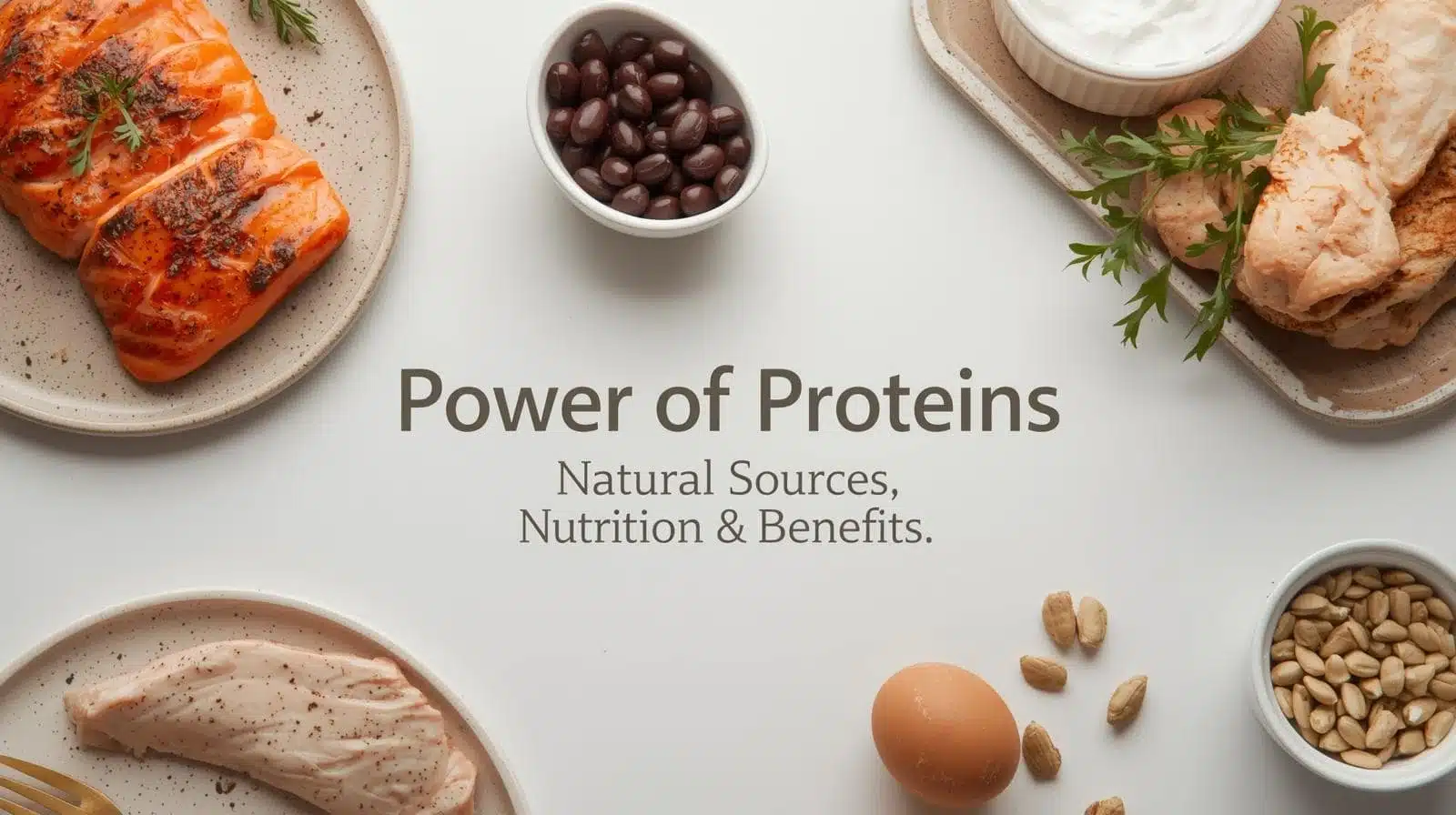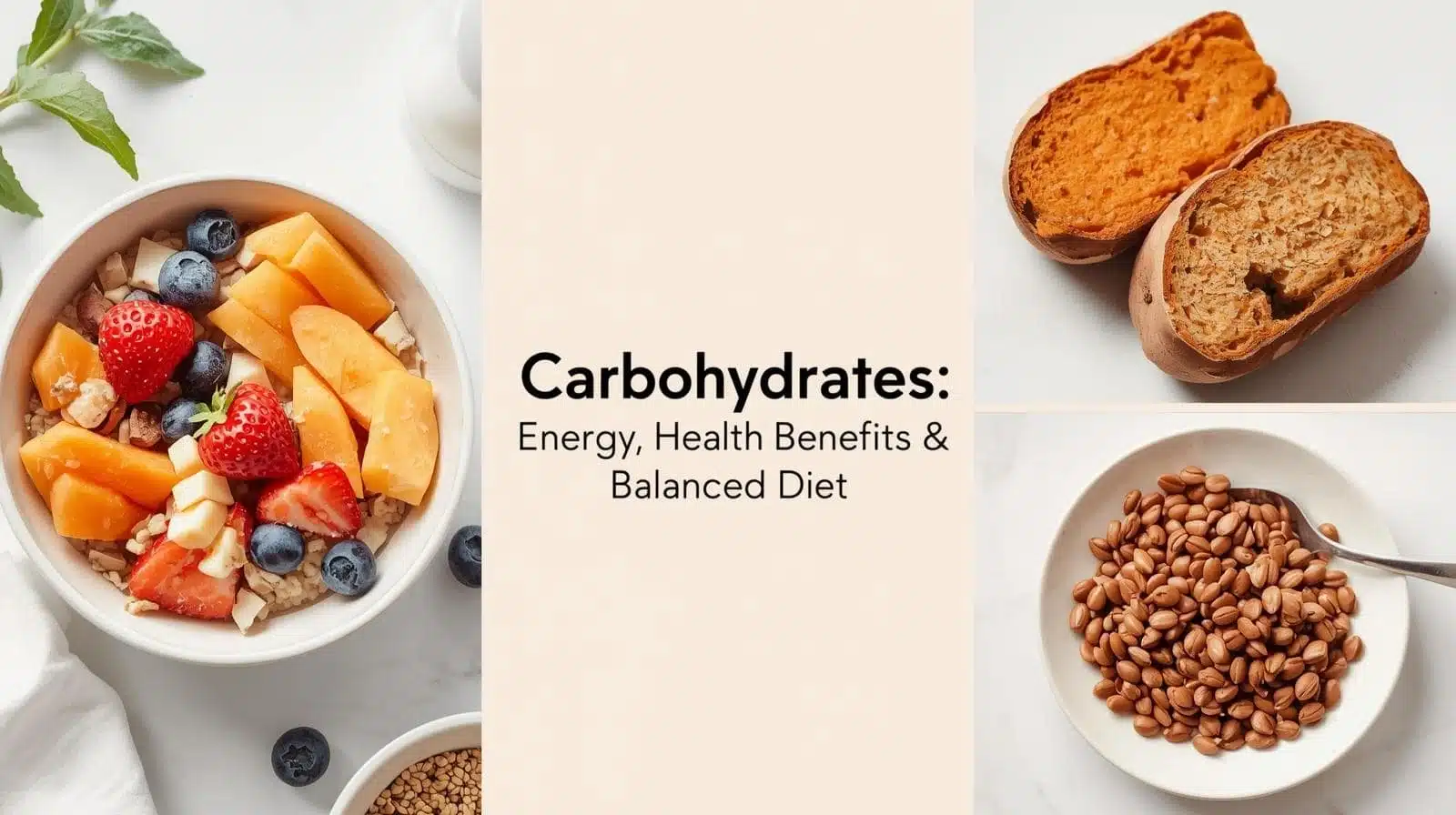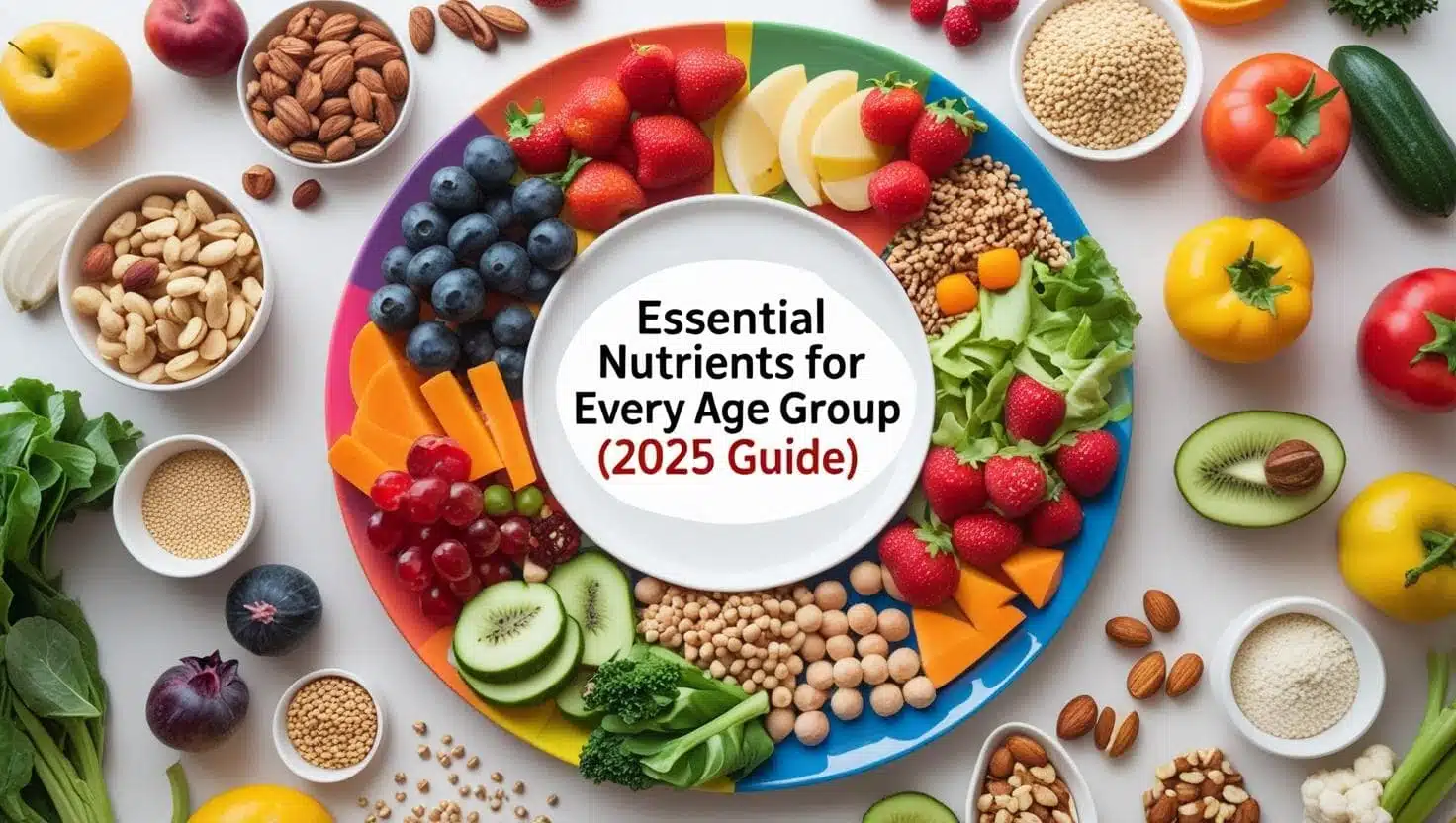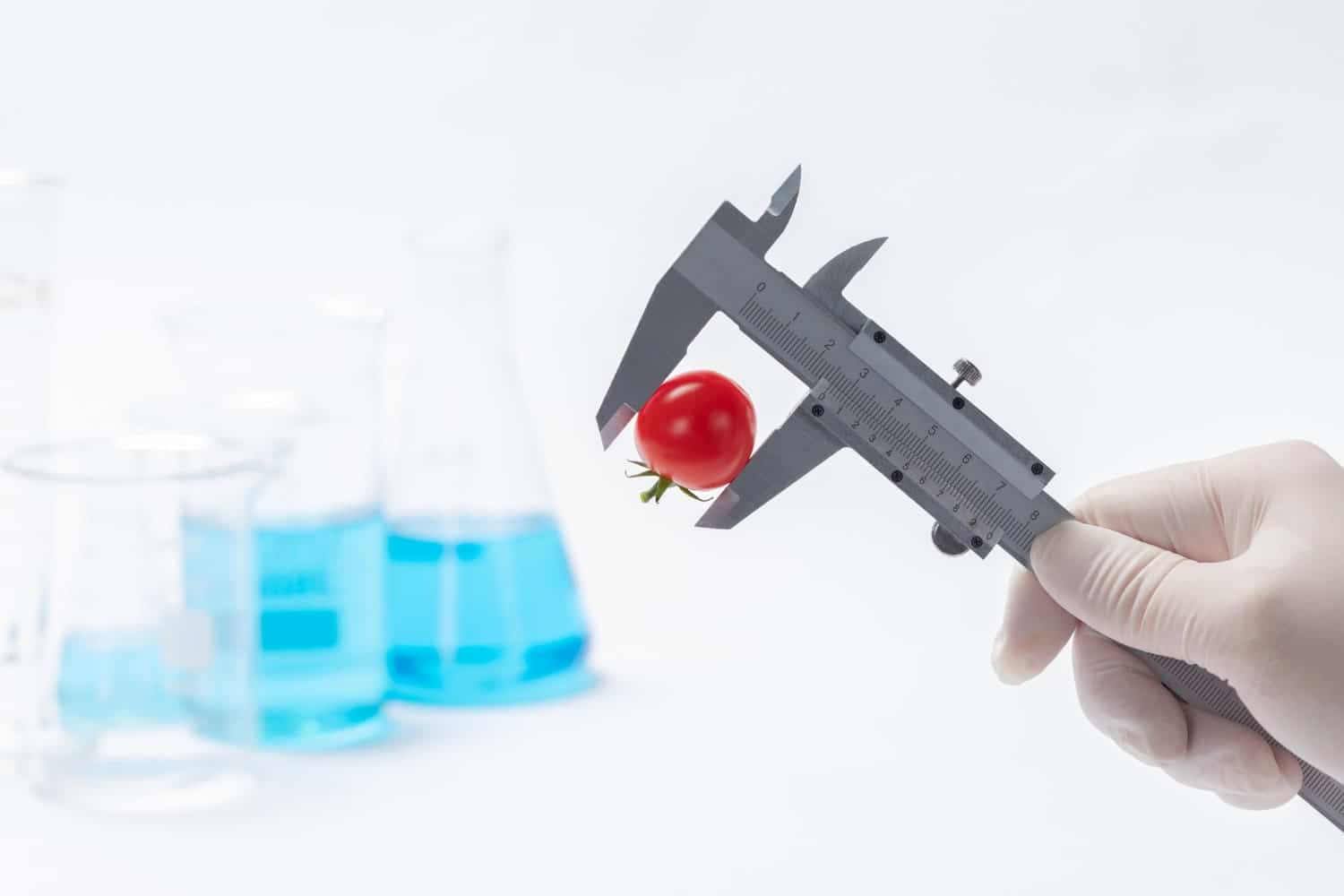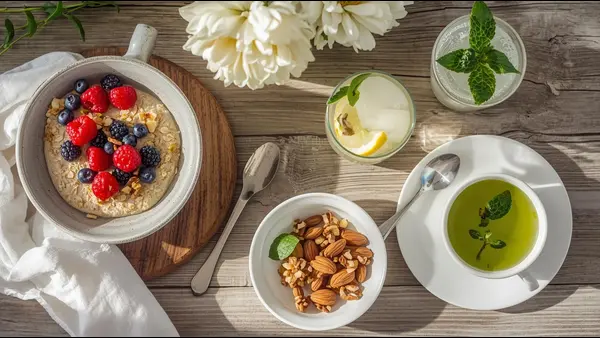
Why Breakfast and Morning Nutrition Matter?
A good breakfast helps to make you happier in life, and to get the day going. It assists children and adolescents to perform better in their tests, sleep better, and maintain a normal body mass index. Adults should also take a balanced breakfast after sleeping. It provides additional energy and maintains the sugar level in blood. Simply put, drinking good wine and eating the right foods in the morning will make you stay concentrated and make your body remain healthy and fit the majority of the time. It works for everyone.
You May Also Read: What should diabetics eat first thing in the morning?
Hydration and Morning Drinks

Start by rehydrating. It is vital that after getting up, you must take a glassful of clean water so that you can rehydrate yourself. It substitutes the excellent that you lost in the evening and participates in causing you to digest food and providing you with vitality. Lemon water is a dieting drink. It contains a lot of vitamin C and it enhances digestion. To keep the heart and immune body strong, one can drink it. No sugar added. Green tea also helps. It includes antioxidants and 20 percent caffeine (about 20 percent of the coffee). It also contains L- theanine that does not cause drowsiness to you but rather makes you active.
Over ninety percent of Americans take coffee in the morning, the first thing. This will help you be more alert by taking coffee. It does, though, make you jittery if you drink it when your stomach is empty, so it raises stomach acid. In the event of heartburn, I would take some milk or have a cup of coffee with breakfast. Skip sugary creamers. The excess amount of sugar and caffeine can also elevate blood sugar levels and subsequently reduce them.
Hint: the glass of plain water or half a lemon water (or herbal/green tea, there should be ginger tea) the one you want to taste should rest on the bedside table. Time is to hydrate in the morning by drinking a massive glass of water.
Fiber-Rich Whole Foods: Oats, Toast and Fruit
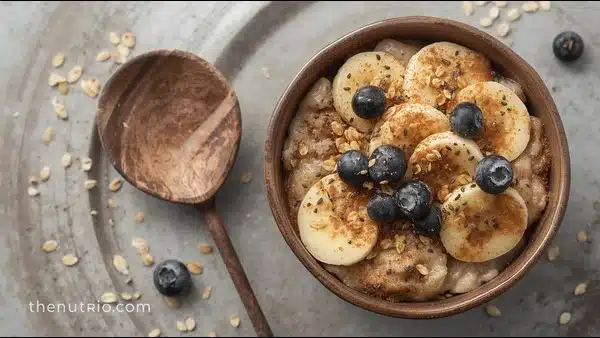
Just add in some fiber and complex carbs so you can be fat and happy. Order a plate of Muesli or another whole grain cereal. The soluble fiber in Oats reduces cholesterol and it keeps you full. Cooked muesli contains about four grams of fiber in a cup. It needs fruit juice or milk, the dairy or the non-dairy to make it healthy.
Another great option is toast made with whole grains or sprouted grains. Whole grains digest slowly and keep blood sugar levels more stable than refined breads. For the most fiber, look for bread that says “100% whole grain” or “sprouted wheat” on the label.
Don’t forget about fresh fruit. Berries, melon, apples, bananas, and citrus fruits all have water, vitamins, and natural sweetness. They usually have few calories and a lot of fiber, which slows down how quickly sugar is absorbed. For example, berries are full of antioxidants. And they have less sugar. Oranges or kiwis add vitamin C. Tip: Eating fruit by itself can make your blood sugar go up a little. Pair fruit with protein or healthy fat (like an apple with peanut butter) to avoid that. This makes the sugars take longer to digest.
Some quick ideas: Add sliced banana and cinnamon to the top of your oatmeal. Spread avocado on whole wheat toast and squeeze some lemon juice on top. To make a simple fruit smoothie, mix berries with almond milk that isn’t sweet.
You May Read Also: What Is Fibermaxxing and How to Start It Safely?
Protein-Packed Choices: Eggs, Yogurt, Smoothies
Having some protein in the morning improves satiety (fullness) and muscle development. One of the protein sources that are commonly used in the morning is the egg. Proteins that come with vitamins (A, D, B12) and choline pose about 6 grams in one large egg. They are boiled and scrambled with or without veggies and in an omelet. Eggs too also have good unsaturated fats. There is no need to worry too much about the cholesterol in diet. The scientific evidence has discovered that eggs do not increase the blood cholesterol of the majority of people.
Another easy way to get a lot of protein is to eat yogurt. Plain Greek yogurt has about 15 grams of protein and probiotics that help with digestion. Fage and Chobani are two brands that make unsweetened Greek yogurts that are high in protein and calcium. You can add fresh fruit, nuts, or seeds to it to give it more fiber and taste. If you don’t want dairy, look for soy or coconut yogurt that isn’t sweetened and has added cultures (live probiotics).
Smoothies and shakes are a great way to get protein and other nutrients on the go. Mix together some milk (dairy or plant), a scoop of protein powder, and some fruits or vegetables. Protein smoothies made with spinach and bananas, for instance, fill you up and give you vitamins. Adding nuts or Greek yogurt to smoothies makes them have more protein and healthy fats. A protein smoothie can help your muscles recover and keep you from getting hungry after an early workout.
Other protein-rich foods include low-fat cottage cheese with fruit, tofu scramble (for vegans), and plant milks that have been fortified with protein. A few almonds on the side add protein and fiber.
You May Read Also: How Healthy is Oikos Triple Zero Yogurt for a High-Protein Diet?
Healthy Fats and Nuts: Satiety and Heart Health
Fats that are good for you are also important. Almonds, walnuts, chia seeds, and flaxseeds are all nuts and seeds that have a mix of protein, fiber, and healthy fats for your heart. A small handful of nuts on cereal or yogurt will give you more magnesium and keep you full. Because they have a lot of calories, keep your portions small (about 1 ounce or a few tablespoons of seeds).
Peanut and almond butters are great for spreading on toast or adding to smoothies. They have monounsaturated fats that are good for your heart. Avocado is another superfood. You can mash it on toast or cut it up and put it in eggs for creamy, healthy fats and fiber.
These fats slow down digestion and help keep blood sugar levels stable. Eating a tablespoon of nut butter or a quarter of an avocado with breakfast can help you avoid feeling tired and craving sugar in the middle of the morning.
Tip for your goal: Eating nuts every day may lower your risk of heart disease. Be careful with salt and sugar. The healthiest choice is to eat raw or dry-roasted nuts that don’t have any added salt or sugar.
You Mat Also Read: [2025] Fats (Lipids): Best Choices for Every Age
Probiotics and Fermented Foods: Gut-Boosting Breakfasts
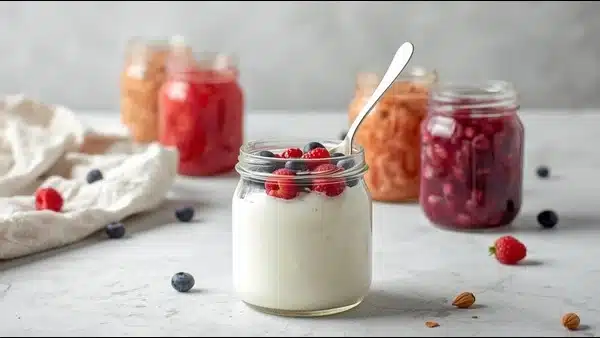
A healthy gut is good for your health in general. Probiotic foods have good bacteria in them that help with digestion and the immune system. For example, yogurt. Lactobacillus acidophilus is a common strain in plain yogurt. Kefir, a fermented milk drink, has even more strains. And it makes a tangy, protein-rich base for smoothies or breakfast drinks.
You should look for yogurts that say “no added sugar” or have a Live & Active Cultures seal on the label. Some of the best brands are Fage, Chobani, Siggi’s, and Kite Hill, which is a plant-based brand. These foods are high in protein and good bacteria. A dietitian says that Greek yogurt with berries and nuts is a good combination. That satisfies sweet cravings and is good for your gut.
You can also get probiotics from other fermented foods, like pouring some kombucha or drinking a small glass of raw apple cider vinegar (ACV) mixed with water. Some people even put spoonfuls of sauerkraut or kimchi on eggs or toast to give them a tangy probiotic kick.
Tip for making your own: Layer oats, yogurt, and berries in a jar to make an overnight oat “parfait.” It ferments a little bit and is ready to grab in the morning. It has probiotics, fiber, and protein all in one.
Functional Foods and Supplements

Some foods and drinks have extra “functional” benefits. Apple cider vinegar (ACV) in water (usually a tablespoon in a glass) is a common morning tonic. Some small studies show that ACV may help lower blood sugar levels when you haven’t eaten in a while and make you feel full after meals. It slows down the emptying of the stomach, which can make you less hungry. Always mix ACV with water and drink it through a straw to protect your teeth. Many people use Bragg’s raw, unfiltered ACV with the “mother” as their main brand.
Another drink that works is green tea or matcha. It has a lot of EGCG antioxidants that are good for the heart and brain, as well as a small amount of caffeine to help you stay awake. A warm matcha latte or plain green tea has few calories but a lot of nutrients.
If you need a specific boost, smoothie supplements can help. For example, collagen powder can help your skin and joints, and greens powder can give you vitamins. A serving of cinnamon or ginger (in tea or oatmeal) can also help keep blood sugar levels stable and calm the stomach.
Be careful: You should only use supplements like caffeine pills or B vitamins when you need to. Most of the time, a meal that is balanced is enough. Always talk to your doctor before starting a regular routine of herbs or supplements. Especially if you are pregnant or taking medicine.
Conclusion
It doesn’t have to be hard to eat well in the morning when you’re hungry. The most important thing is to make choices that are balanced. Mix in fiber (whole grains, fruit), protein (eggs, yogurt, nuts), healthy fats (avocado, nuts), and water. This mix will keep your body fueled and stop your cravings. And help you reach your health goals, like keeping your weight in check, digesting food, and keeping your heart healthy. For instance, oatmeal with berries and a spoonful of Greek yogurt has fiber, antioxidants, protein, and probiotics. Drinking water or tea first thing in the morning gives you energy without adding calories.
It’s important to be consistent. Choosing whole, minimally processed foods every morning helps you develop healthy habits that last. Your body will thank you over time by giving you more energy, better digestion, and even better heart and brain health. So tomorrow morning, instead of skipping breakfast or grabbing a sugary snack, get some food that is full of nutrients. Your body is worth it!
Frequently Asked Questions (FAQs)
It’s fine to drink warm lemon water in the morning because it adds vitamin C, but it’s not a miracle cure. It helps with digestion and rehydrates the body. But studies show that lemon water doesn’t offer any unique benefits over plain water; the main goal is to stay hydrated. If it makes you feel good, go ahead, but don’t worry about when you eat your lemon. Instead, focus on having a balanced breakfast.
Most people can drink black coffee on an empty stomach without getting ulcers. But coffee does make stomach acid work harder and is absorbed faster on an empty stomach, which can make some people feel jittery or give them heartburn. If you’re in pain, try eating something first or adding a little milk to cut down on the acidity.
Vegans can eat whole foods and plant-based proteins. Some good choices are overnight oats made with almond or soy milk and chia seeds, a tofu scramble with veggies, nut butter on whole-grain toast with a banana, or smoothies with plant-based protein powder (pea or soy) and spinach. You can also use unsweetened soy or coconut yogurt with fruit and nuts. If you need more B12 and calcium, fortified plant milks or cereals can help.
To keep your blood sugar in check, eat foods that are high in protein and fiber. For instance, eggs or plain Greek yogurt with some nuts and berries. Another choice is steel-cut oats with chia seeds and cinnamon on top. Stay away from cereals and juices that have added sugar. Diabetes experts say that you should always eat carbs (like fruit) with protein or fat. Using a meter to keep track of how you react can help you figure out what works best.
Not eating breakfast won’t help you lose weight, but skipping it can backfire. Eating a filling breakfast (with protein and fiber) can help you avoid eating too much later. Studies show that people who eat balanced breakfasts tend to eat fewer calories throughout the day. Eat foods that are high in nutrients and keep you full, like eggs, oats, and vegetables. If you really want to eat later, make sure that any lunch you have is well-balanced and not too big. For weight loss goals, the most important things are consistency and total daily intake.
Expert sources like Harvard Health, the Cleveland Clinic, the USDA, and health journals show how important fiber, protein, hydration, and balanced nutrients are in a healthy breakfast.
Disclaimer: The information on thenutrio.com is only for educational and informational purposes and is not meant to be medical, nutritional, or professional health advice. Before making any changes to your diet, treatment plan, or health routine, you should always talk to a qualified healthcare provider, doctor, or registered dietitian. You use any information on this site at your own risk, and thenutrio.com and its authors are not responsible for any bad results.





![[2025] Fats (Lipids): Best Choices for Every Age](https://www.thenutrio.com/wp-content/uploads/2025/09/A-vibrant-hero-image-showing-a-colorful-plate-rich-in-healthy-fats—like-avocado-toast-nuts-olive-oil—paired-with-text-overlay-2025-Fats-Lipids_-Best-Choices-for-Every-Age.-4-min-1-1.webp)
